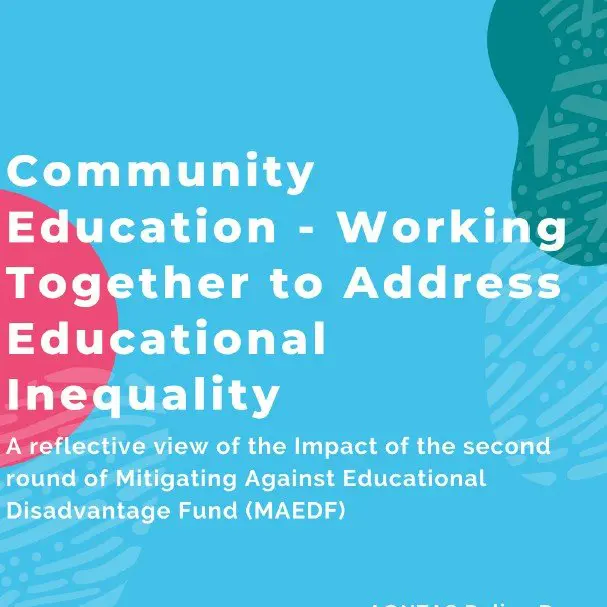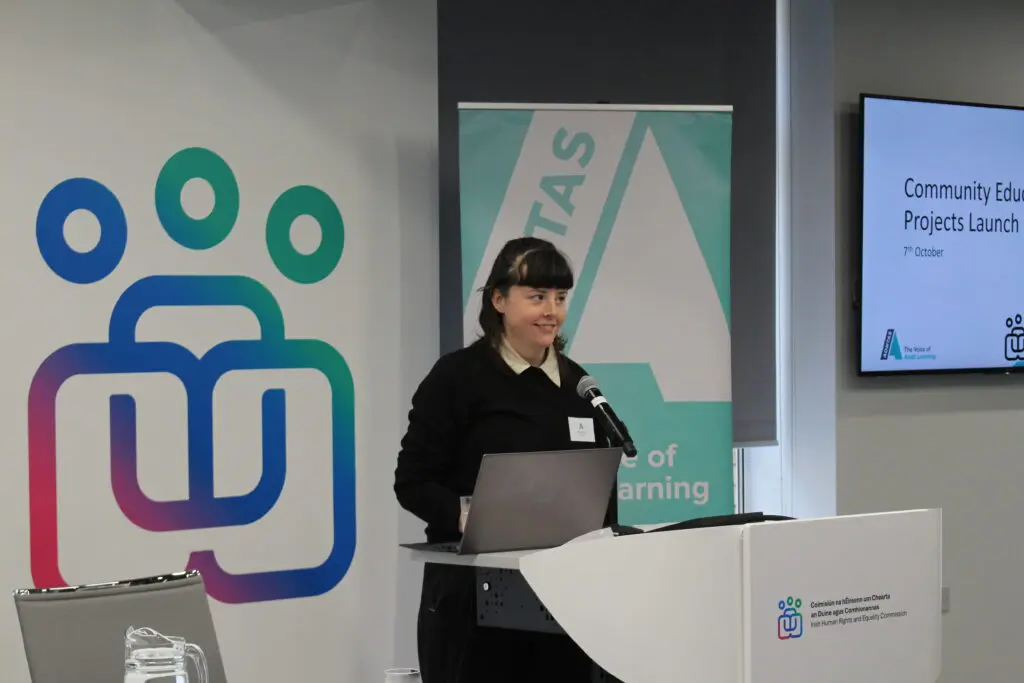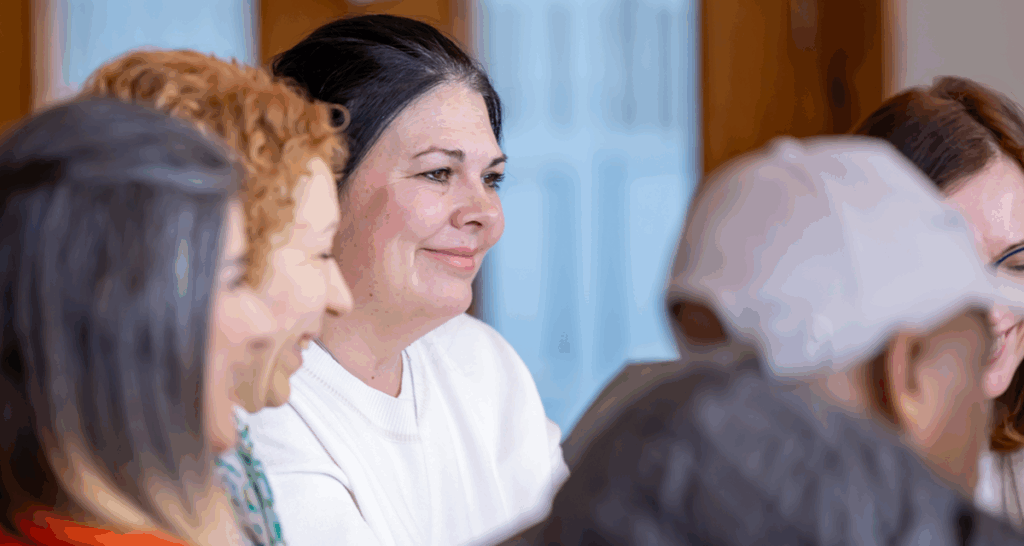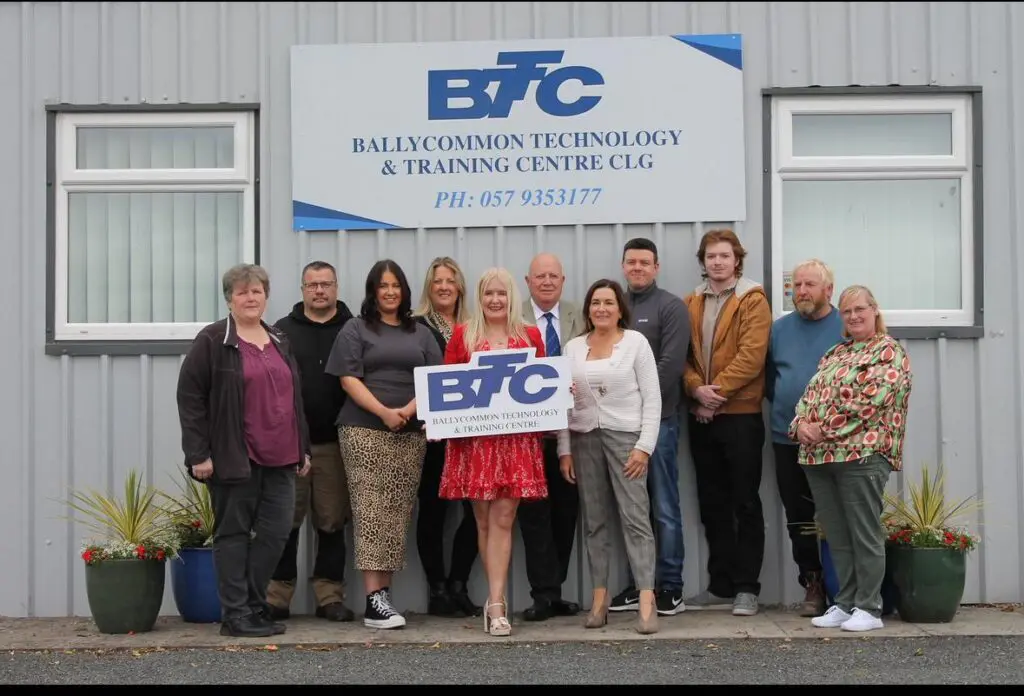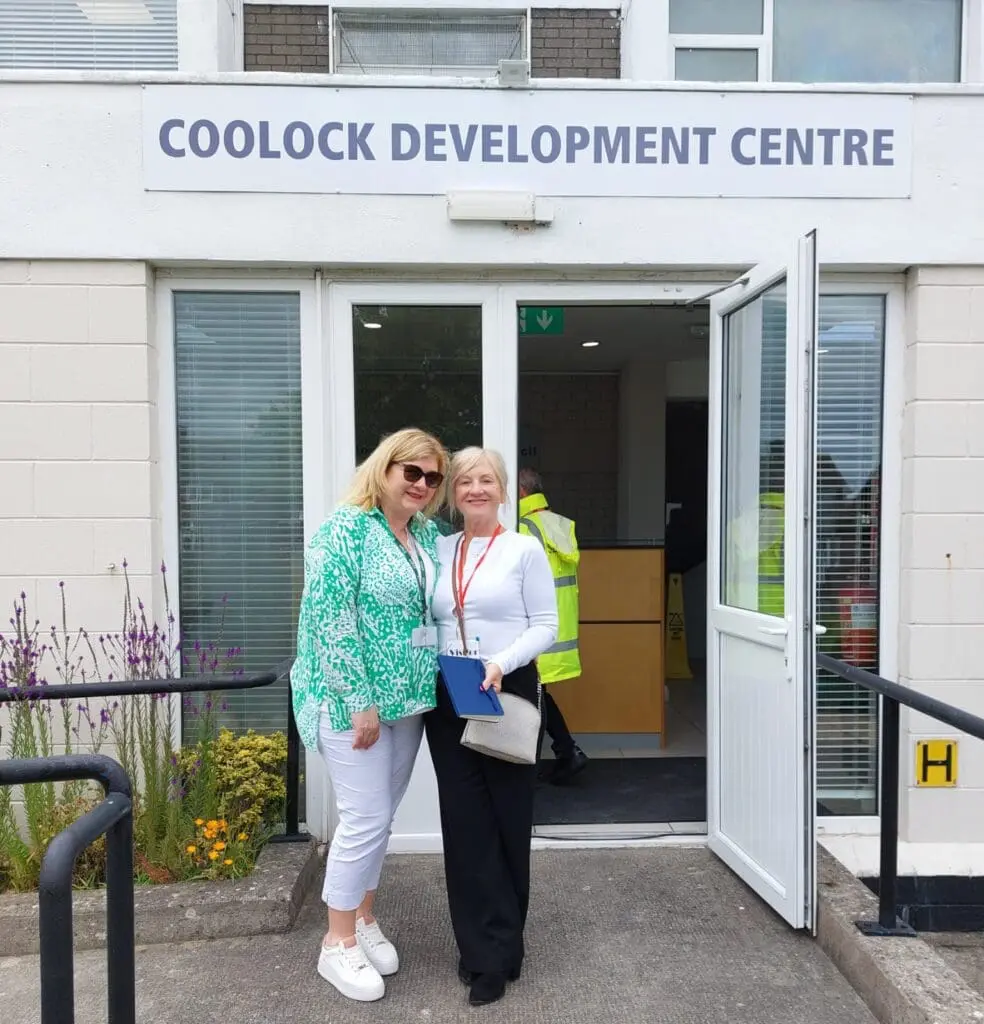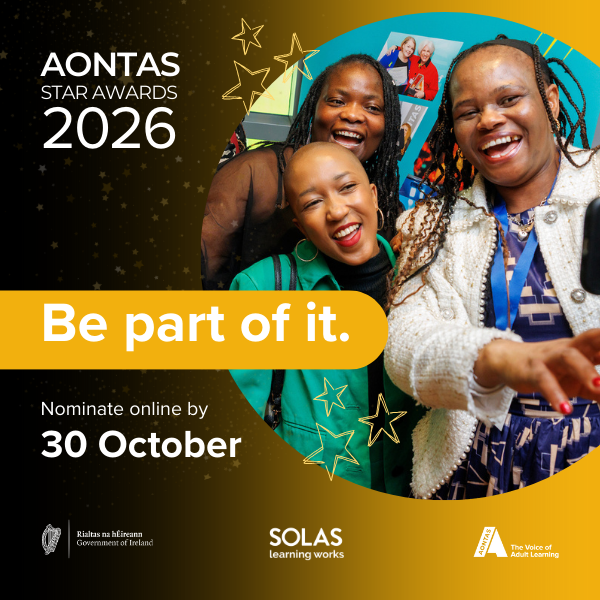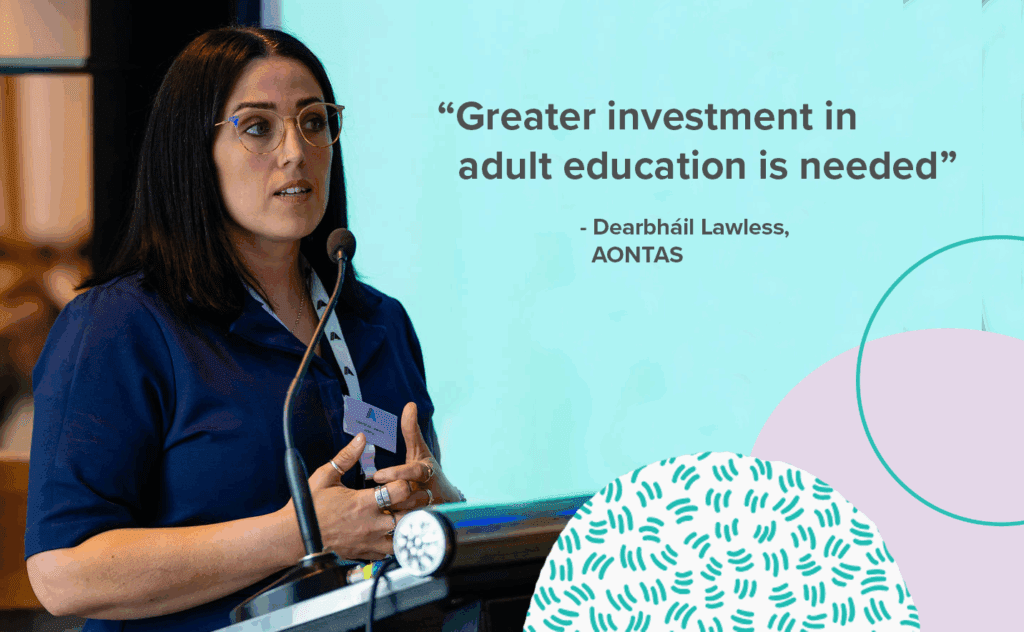Not everyone has the same access to education, and the COVID-19 pandemic has exacerbated existing inequalities. Lots of different factors contribute to these inequalities in our society, such as social and economic circumstances, gender, race, ethnicity, physical and mental health, as well as where a person is born and where they grow up.
The pandemic has made it more difficult for a lot of people to take up or continue educational courses, classes, or training initiatives.
Although we have moved into a new stage of dealing with COVID-19, the damage caused and the problems that were intensified by the pandemic will not be easily fixed. Education that is led by and takes place in local communities is essential to our collective recovery.
The Mitigating Against Educational Disadvantage Fund: The Story so Far
In recognition of these inequalities and challenges, and of the lack of consistent funding for those who are most disadvantaged in education, AONTAS has advocated for a COVID-19 Community Education Support Fund, to urgently reach those most in need. This led to the Mitigating Against Educational Disadvantage Fund (MAEDF), which was allocated to the sector by the Government through the Department of Further and Higher Education, Research, Innovation and Science. The first round of funding in 2020 was €8 million and the second round, in 2021, was €6.85 million. The fund was specifically directed towards community education groups around Ireland, as community education has been shown to help the most disadvantaged learners.
Minister Simon Harris TD announced in December 2021 that the MAEDF would be “a regular feature of our education system”.
What is Community Education?
The AONTAS Community Education Network agree that community education is “a process of personal and community transformation”. Through local, self-managed, independent community education organisations, who are committed to social change, people in their communities can become empowered through learning.
It is about forms of learning that are led by the community. It considers people’s real-life experiences, meeting people where they are, providing what they need. It draws on the work of educator and philosopher Paulo Freire, who advocated for a pedagogical approach that values and prioritises the lived experience of the learner.
Depending on their stage of learning, adult learners can undertake non-accredited courses, which can provide a stepping stone for many learners, often leading to accredited courses through Quality and Qualifications Ireland (QQI). Courses and classes include everything from language classes, IT, personal development, yoga or painting. There are also supports for learners to retrain in a different area, to change career path, and to get back to education.
 Employability is not the main focus of community education. It looks at the whole human being and how learning – in whatever form – can benefit them, their wellbeing, self-confidence, attitude towards the world around them and the future. Community education is shaped by the needs of the people in the local community, and is grounded in principles of justice, equality and inclusiveness.
Employability is not the main focus of community education. It looks at the whole human being and how learning – in whatever form – can benefit them, their wellbeing, self-confidence, attitude towards the world around them and the future. Community education is shaped by the needs of the people in the local community, and is grounded in principles of justice, equality and inclusiveness.
Limited Access to Funding
However, community education groups around Ireland have had limited access to funding. The research conducted by AONTAS found that 76 organisations are being funded by nine different Government departments, through 51 different funding streams. These organisations support about 15,000 adult learners across Ireland. This means that organisations are providing a huge level of support for lifelong learning and education, while also dealing with a lot of confusion and administrative burden to obtain and maintain their funding.
The MAEDF was specifically proposed to support the most marginalised learners, including older adults, refugees, Travellers, people in receipt of social welfare, people with additional needs or disabilities, lone parents, people experiencing mental health challenges, and many others. Such supports are all the more essential now, with the horrific war in Ukraine and the Ukrainian people seeking refuge in Ireland, but also the refugees who have been and are currently in Direct Provision without access to education at the moment.
The recent research conducted by AONTAS has taken on even greater importance as it shows the impact of the COVID-19 pandemic on community education organisations and on the most marginalised groups.
The Impact of the COVID-19 Pandemic
In January 2022, AONTAS conducted a survey of 56 community education groups across twelve ETBs who received the MAED Fund. The goal was to find out more about their experience, how the money was used, and the difference it made for their group and the learners they support. Over 80% of respondents to the survey used the MAEDF to reach marginalised learners who had disengaged from learning during the pandemic.

Because almost all learning and community projects had to be done online, one of the most pressing issues was digital poverty—lack of access to laptops, Broadband, IT skills, and other resources need to learn and come together in an online community. 76% of the MAEDF was used to address this, primarily through providing digital devices, but it was also used to provide support for learners’ wellbeing during the stress of the pandemic, and to introduce new courses based on learners’ needs. Major issues for people who might want to learn include rent and childcare. These are basic needs that must be met if people are going to consider taking up a course or seeking a qualification.
Respondents to the survey stated that the benefits of the fund included increased social engagement for learners, improved mental health and wellbeing, and increased confidence and self-esteem. These benefits can be hard to measure, quantify, and track but they have a potentially transformative effect on a community and knock-on benefits for broader society.
However, AONTAS has learned through engagement with our members and adult learners that many people’s needs are still not being met when it comes to education access and opportunities.
There has been a significant drop in the number of adults in Ireland engaging in learning at the first three levels of the National Framework of Qualifications. The Framework, according to QQI, describes what learners need to know and be able to do in order to achieve a qualification. It ranges from Level 1 to Level 10, from certificates to Bachelors Degrees to Masters Degrees and Doctorates.

Research conducted by QQI in 2022 showed that, in 2021, the number of QQI Further Education and Training (FET) major awards made at levels 1 to 3 on the Framework were 50% less than in 2019, before the pandemic. For level 4 on the Framework, there were 25% fewer major awards. This suggests that adults who are most in need, or have had the least opportunity to access education, are those suffering the most as a result of the crisis.
The survey conducted by AONTAS into the MAEDF shows that most of the funds went to learners who are in receipt of social welfare, from working class communities, older learners, women, those with additional needs and/or disabilities, and those with mental health challenges. But other adults who might want or need increased access to education and learning opportunities are not being reached, such as home carers, refugees, Travellers, people experiences homelessness, and Roma communities.
AONTAS calls for all of the existing MAEDF to be spent in order to support these learners, as well as calling for an extended MAEDF in 2022.
Community education organisations need stable, sustainable ongoing financial support so they can help those most in need. The average amount of funding used by those surveyed was just €2,579, a small amount, but this has a big impact in a community.
There are some improvements that could be made to the fund, and the processes around it. AONTAS is providing recommendations for these improvements, including:
- A timeframe that allows community education groups to plan ahead. The previous timeframe between grant approval and spending was too tight. The funding call was issued too late, and more time is needed until the deadline to spend funds (e.g. some groups received funding in November but had to spend it by year end).
- Consistency across the Education and Training Boards in how the timelines are communicated and in how the fund is disseminated
- Targeted support for specific groups, such as Travellers and Roma
- Ensuring staff costs are covered
- Ensuring procurement is appropriately covered by the fund
This feedback comes directly from community education providers, and shows valuable insight into how this fund can be amended to make it even more effective.
Efforts are being made on a broader scale to work towards educational equality and to recognise the significant impact of the pandemic. The Department of Further and Higher Education, Research, Innovation and Science recently announced the roll-out of a fund of €450,000 specifically for Travellers and people from Roma communities, to assist them in higher education and to “ensure that COVID-19 did not widen the already significant gap in higher education between Travellers and the wider population”. Similar designations of specific targeted funding for marginalised groups are needed in community education.
In addition, the new Community Education Framework, led by SOLAS as part of the FET Strategy, can contribute to ensuring sustainable funding for community education as part of the broader Further Education and Training sector. The strategy commits to “supporting a diverse network of community education providers and projects consistently across the country and encouraging innovation in ground-up community-based learning initiatives”. The MAEDF provides an opportunity to do this.
More broadly, due to the scale of the challenge of achieving educational equality for all, particularly as we recover from the pandemic, AONTAS is calling for a commitment to an equitable, sustainable, multi-annual funding package that empowers community education organisations to address the needs of learners and local communities.
Click here to read the new MAEDF Policy Paper on the AONTAS website.
